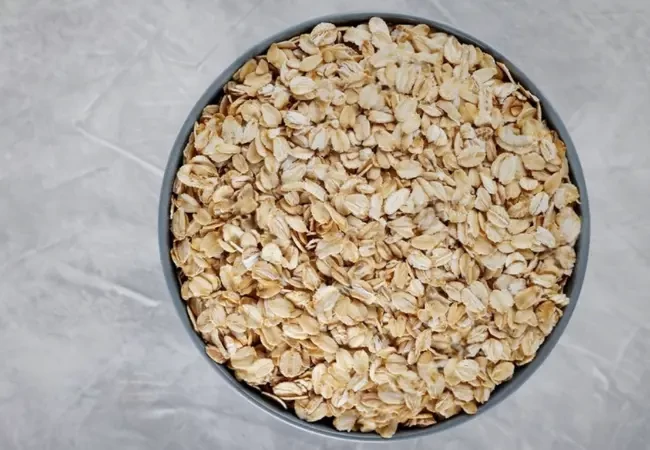Blog
Insulin and
Weight Gain

Does Insulin Cause Weight Gain in Diabetics?
 Medically reviewed by: Dr. Tom Babu, Medical Director - Written by Jasni Salim - Updated on 03/09/2024
Medically reviewed by: Dr. Tom Babu, Medical Director - Written by Jasni Salim - Updated on 03/09/2024People who usually take insulin have a question in their mind “can insulin cause weight gain. The answer is it depends. For some people, it causes weight gain but for others, it is not. Insulin helps the body use sugar (glucose) in some people. Gaining weight can be upsetting especially for managing diabetes. The good news is that you can keep a healthy weight while using insulin. Insulin and weight gain often happen together but you can manage your weight. If you need insulin, here are some ways to avoid or reduce weight gain. So go on reading.
What is the Link between Insulin and Weight Gain?
When you take insulin for diabetes, it helps sugar from your blood go into your cells which lower blood sugar levels and it is the goal of treatment. However, if you eat too many calories and gain weight, your cells can get too much sugar. This can also happen to people without diabetes. The number of calories you need depends on how active you are. If your cells do not use all the sugar they have, the extra sugar can turn into fat. Keeping a healthy balance is important for everyone.
How to Avoid Weight Gain While Taking Insulin?
Eating healthy foods and exercising regularly will help you in weight and diabetes management. Have a look at some of the tips given below to help you stay on track:
Count Calories
To avoid gaining weight, eat and drink fewer calories. Always keep fruits, vegetables and whole grains at home. You can plan meals that include a mix of non-starchy veggies, proteins and healthy starches. A good meal should have half non-starchy vegetables, a quarter protein and a quarter starch like rice or corn. To help control your portions, serve smaller amounts, avoid taking second servings and choose water over sugary drinks. It is a good idea to talk to your doctor or dietitian for help with meal planning and to find more resources. Eating healthy can be simple and will help you stay in shape.
Do Not Skip Meals
Do not skip meals to lose weight. When you skip one, you might eat unhealthy foods later because you are too hungry. Also, not eating can cause your blood sugar to drop if you take insulin for diabetes. It is better to have regular meals to stay healthy and make better food choices.
Stay Physically Active
Being active will help you burn calories. Most adults should aim for at least 150 minutes of exercise each week which is about 30 minutes a day, five days a week. This can include activities like walking, biking, swimming, dancing or gardening. It is also important to do muscle-strengthening exercises at least two times a week. Talk to your doctor about which exercises are best for you for weight and diabetes management. Exercise helps your body use insulin better but if you plan to exercise a lot, you might need to lower your insulin dose or eat a snack to keep your blood sugar stable. Remember, your blood sugar can drop even hours after you exercise thus keep an eye on it.
Ask Your Provider about Other Diabetes Medicines
Some diabetes medicines can help control blood sugar, assist with weight loss and reduce the need for insulin. These include metformin, exenatide, liraglutide, dulaglutide, sitagliptin, saxagliptin, canagliflozin, dapagliflozin, empagliflozin and pramlintide. If you have diabetes, talk to your doctor about whether these or other medicines could be helpful for your treatment plan.
Take Your Insulin Only as Directed
Do not lower your insulin doses to avoid gaining weight. While taking less insulin might make you lose some pounds, it can be very dangerous. If you do not have enough insulin, your blood sugar will go up which can lead to serious problems with diabetes. Always follow your doctor's advice about insulin.
Conclusion
If you think that insulin can cause weight gain, then it depends on each person. Managing diabetes is a lifelong journey and it takes time to find out what works best for you. As you learn how your body reacts to insulin, you can change your treatment plan to fit your needs.
You can approach Silverline hospital to consult with endocrinologist. Endocrinology is a medical field that helps treat problems caused by hormone issues. Hormonal imbalances can lead to many diseases including diabetes and obesity. This hospital is the best place in Kerala to treat all kinds of hormone related disorders.

More Blogs
-

Sudden Erectile Dysfunction: It's More Than Just Hormones
Experiencing sudden erectile dysfunction? It could signal deeper health issues beyond hormonal imbalance.
-

Oats Are Also Carbohydrates: Here's Why Protein-Based Foods Are the Better Choice
Think oats are healthy carbs? Discover why protein-based foods are a smarter choice for sustained energy and balanced nutrition.
-

How Vaccines Help Protect Diabetics From Infections
Discover how vaccines protect diabetics from infections by boosting immunity and preventing serious complications.
-

Vaccinations for Diabetics: Flu, Pneumococcal, Tdap & More Explained by Experts
Stay protected with the right vaccines. In this expert-led guide, learn why flu, pneumococcal, Tdap, and other vaccines are essential for people with diabetes.
-

Struggling with Erection or Early Ejaculation? Here's How to Get Help
Struggling with erectile dysfunction or premature ejaculation? Learn common causes, treatments, and how to seek professional help with confidence.


 Home
Home  Booking
Booking
 Chat Now
Chat Now  Call Us
Call Us